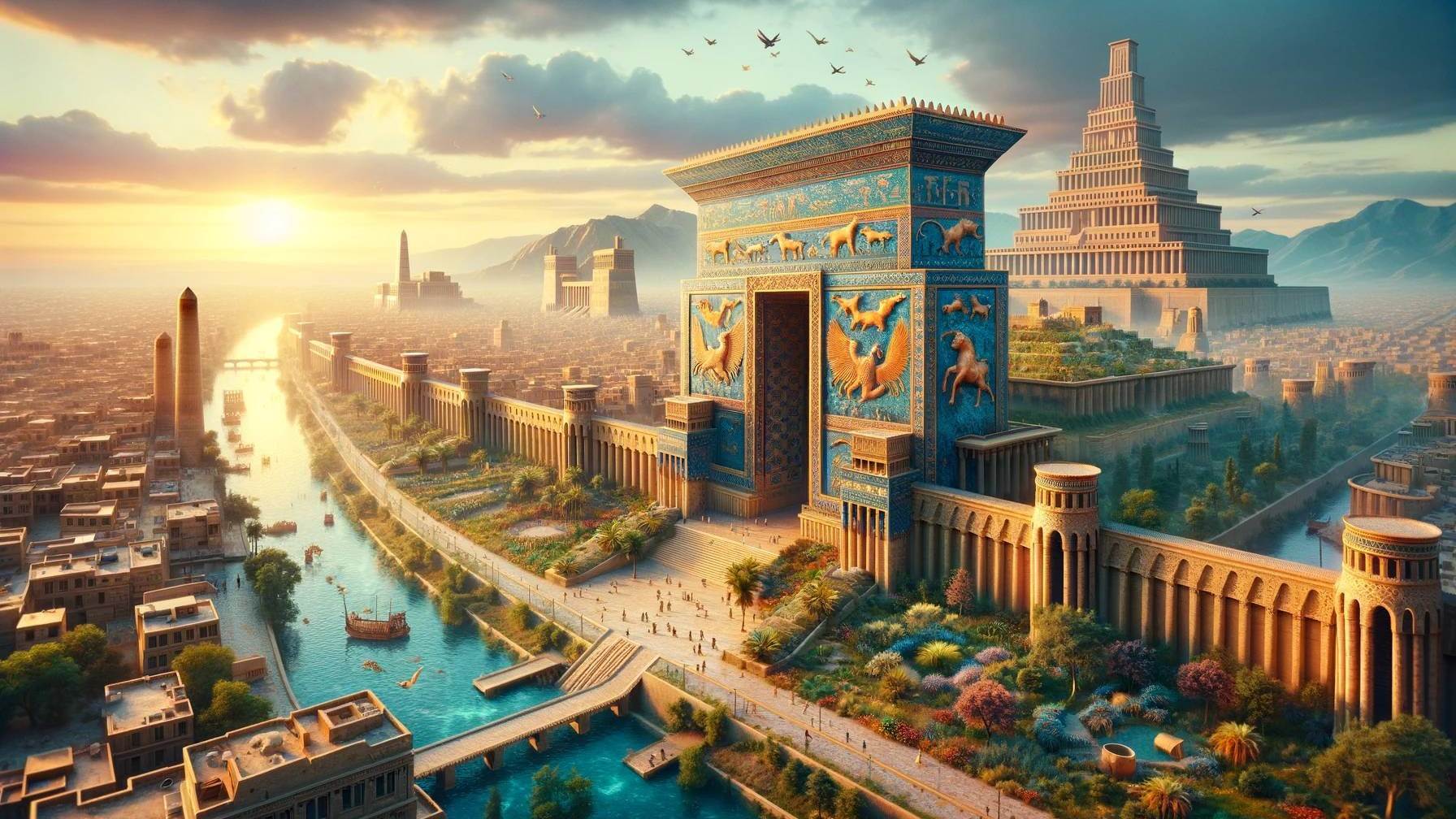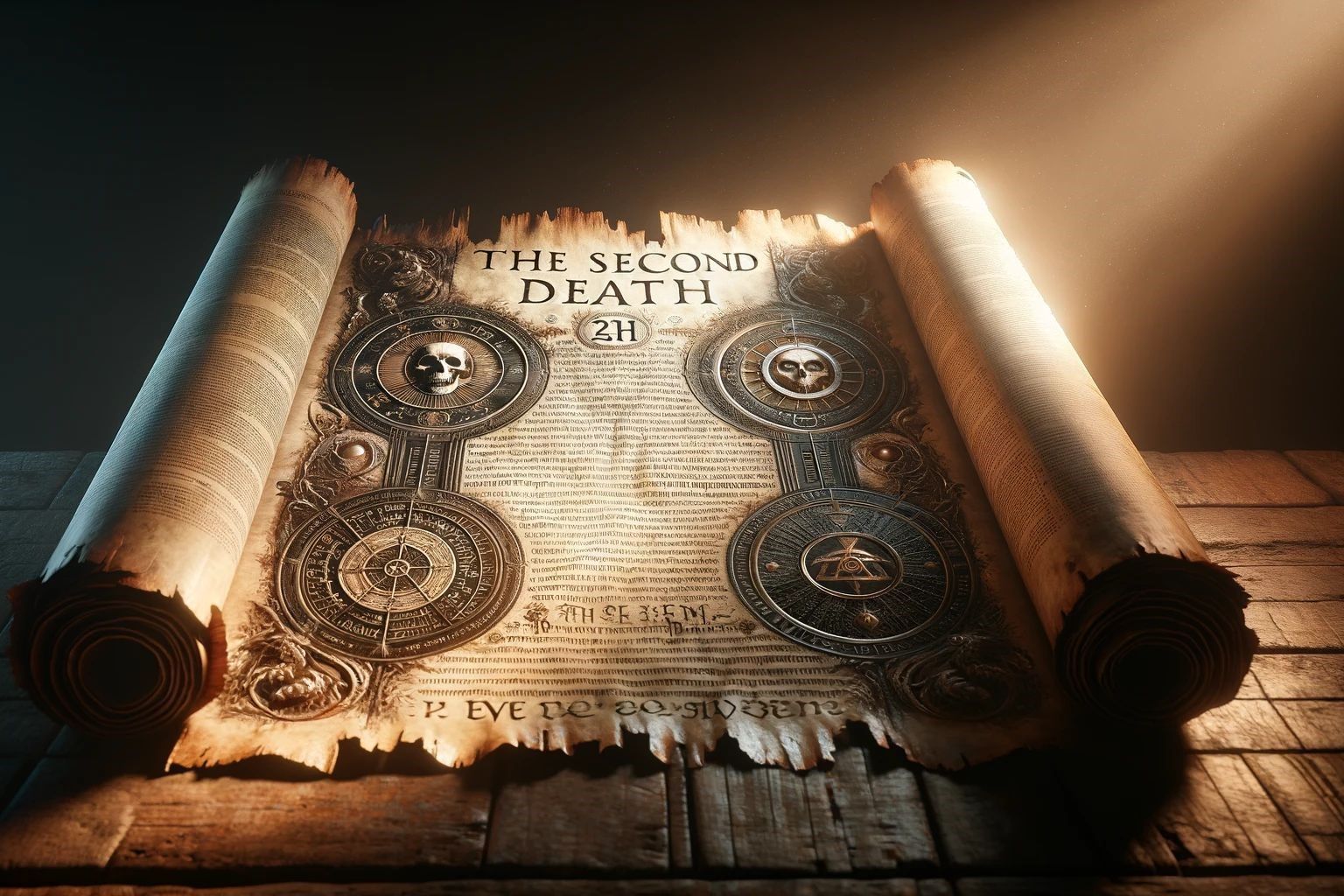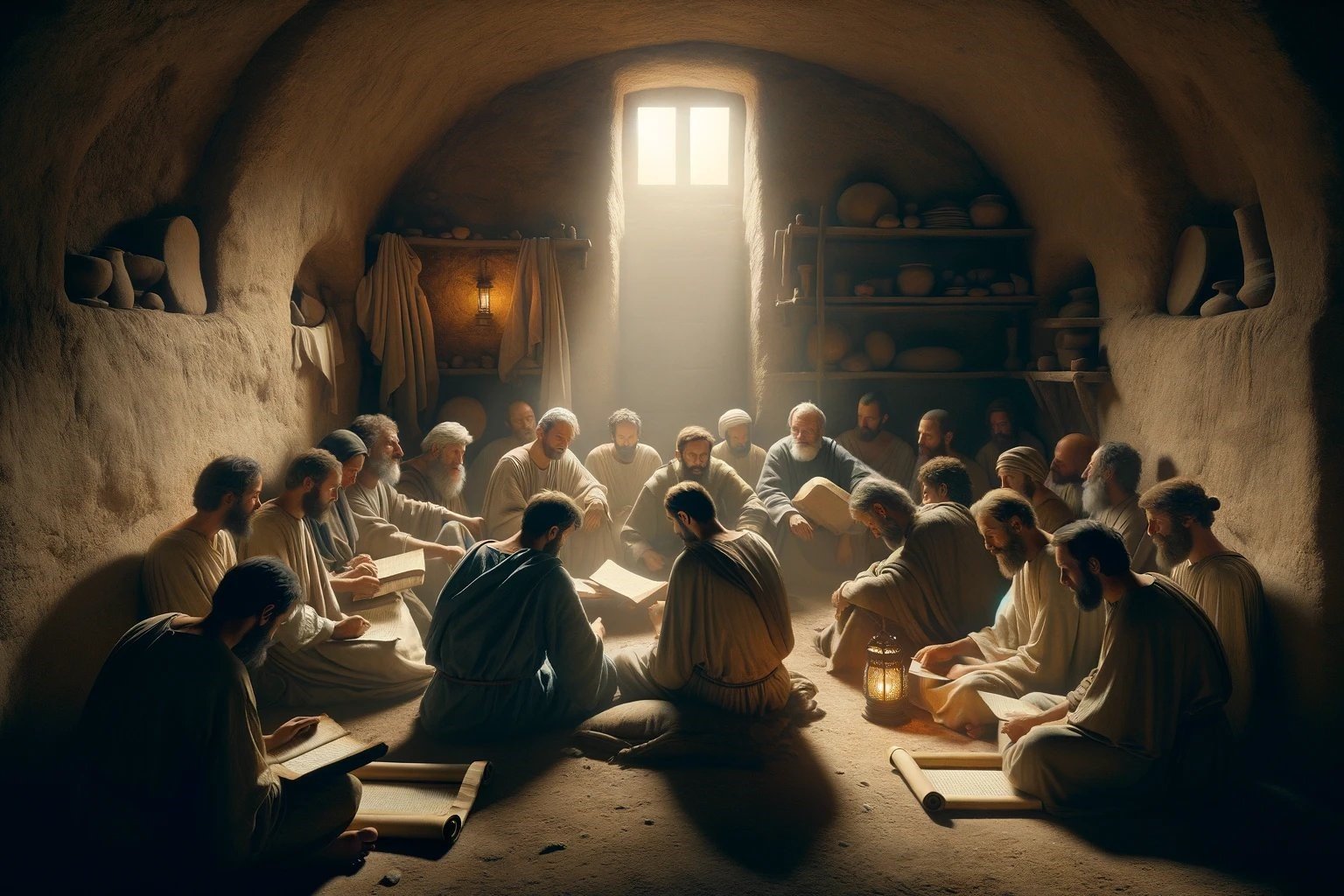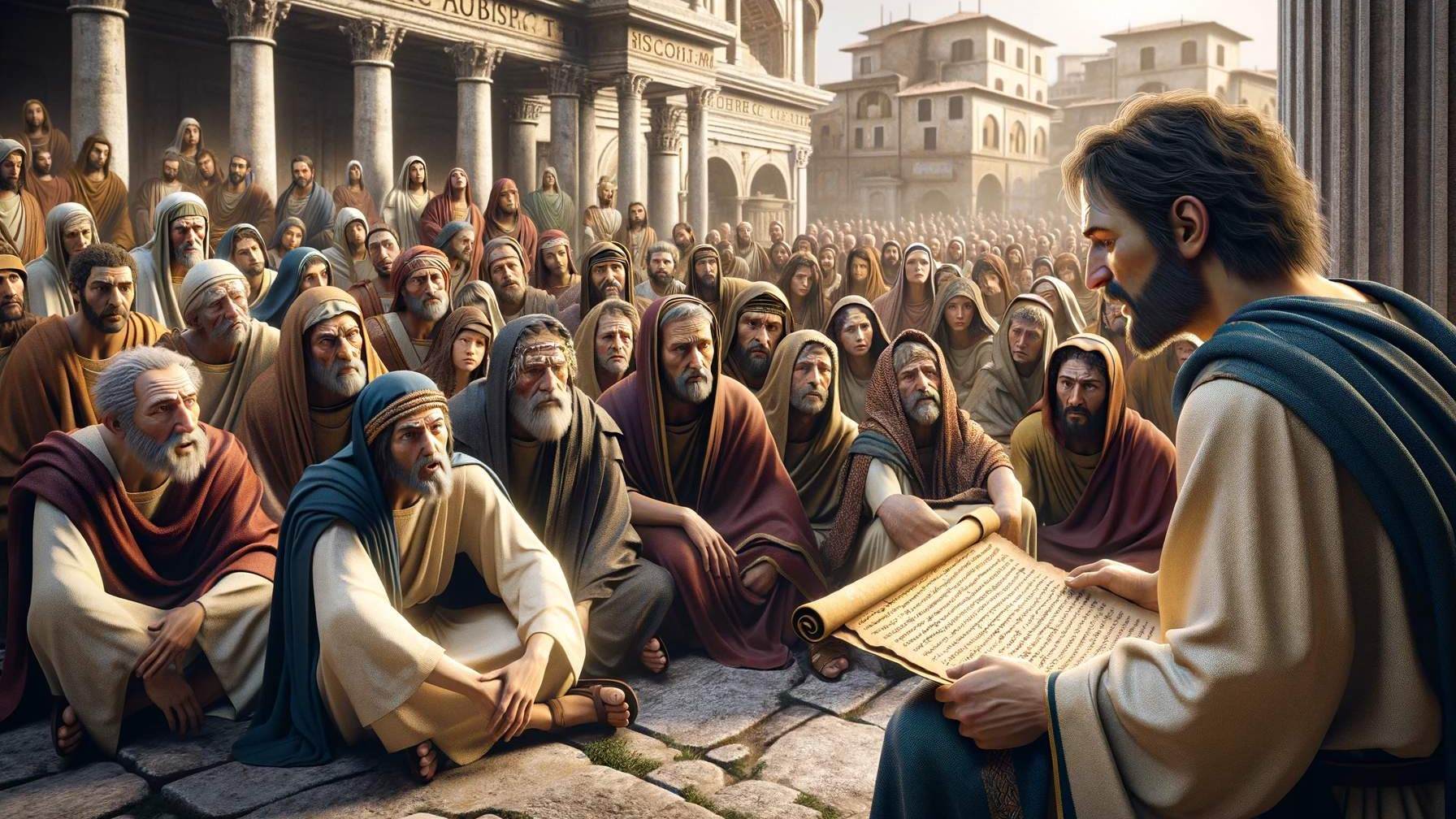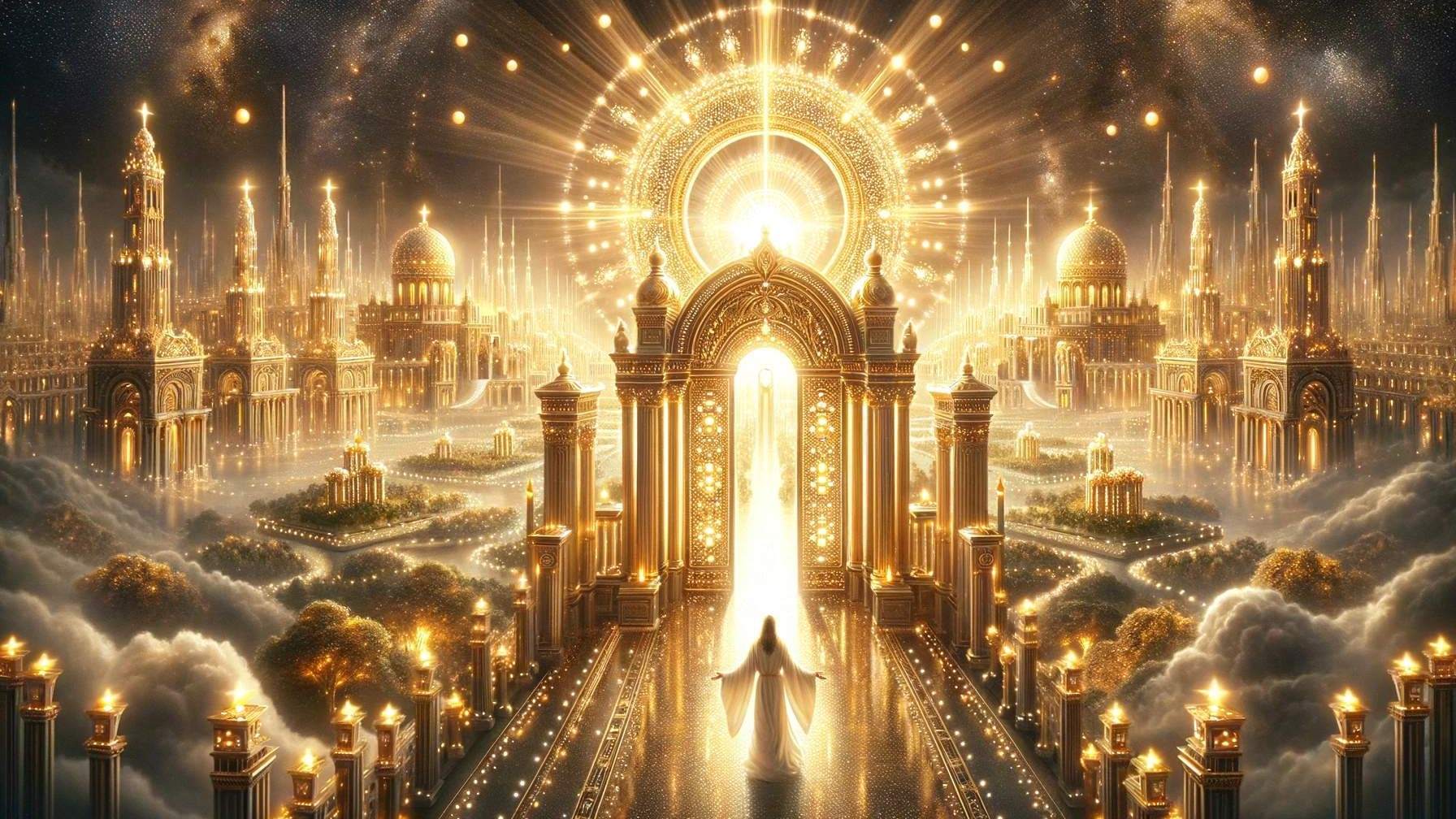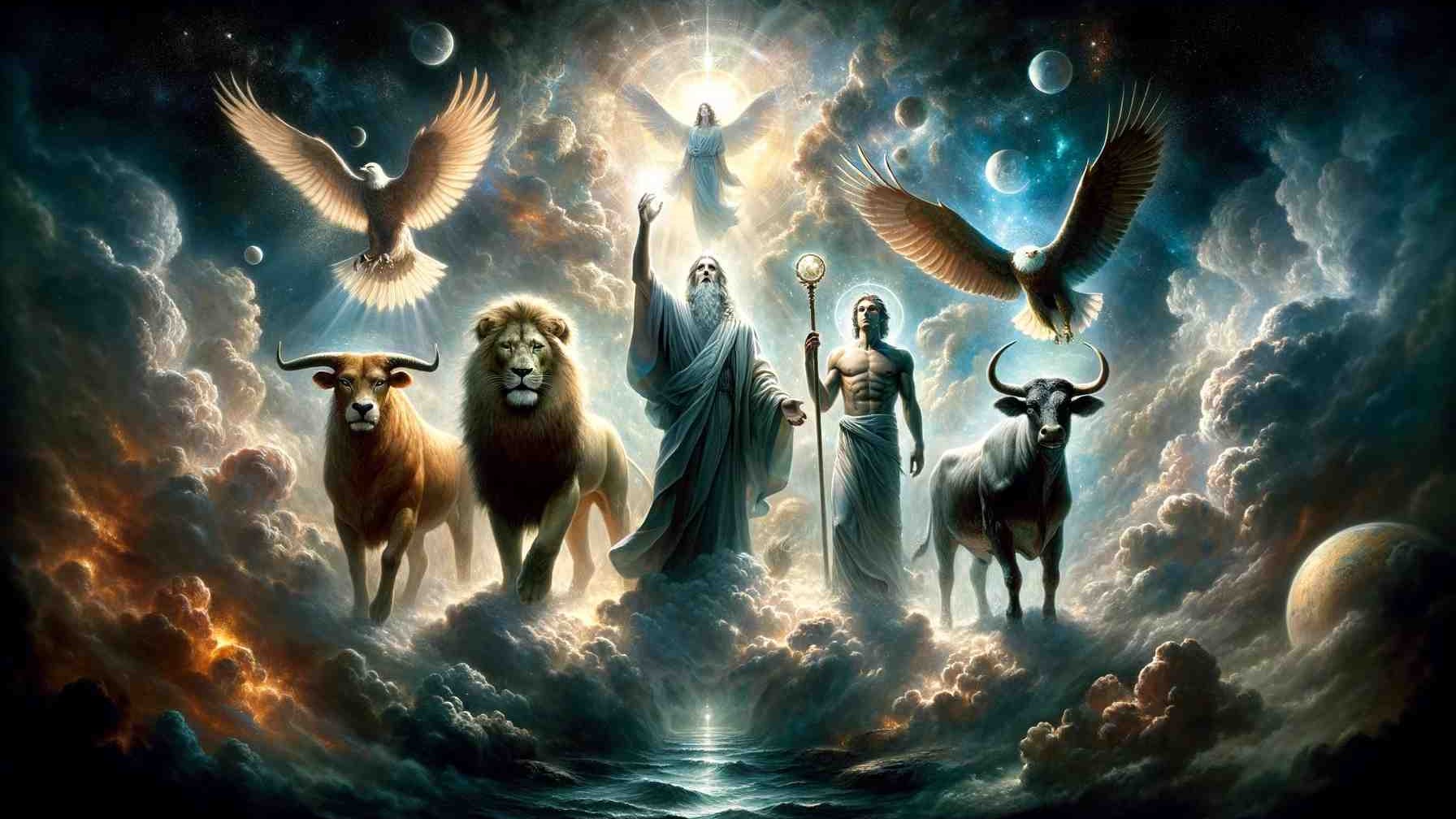Home>Bible Facts>What Are The Three Main Themes Of The Book Of Revelation?
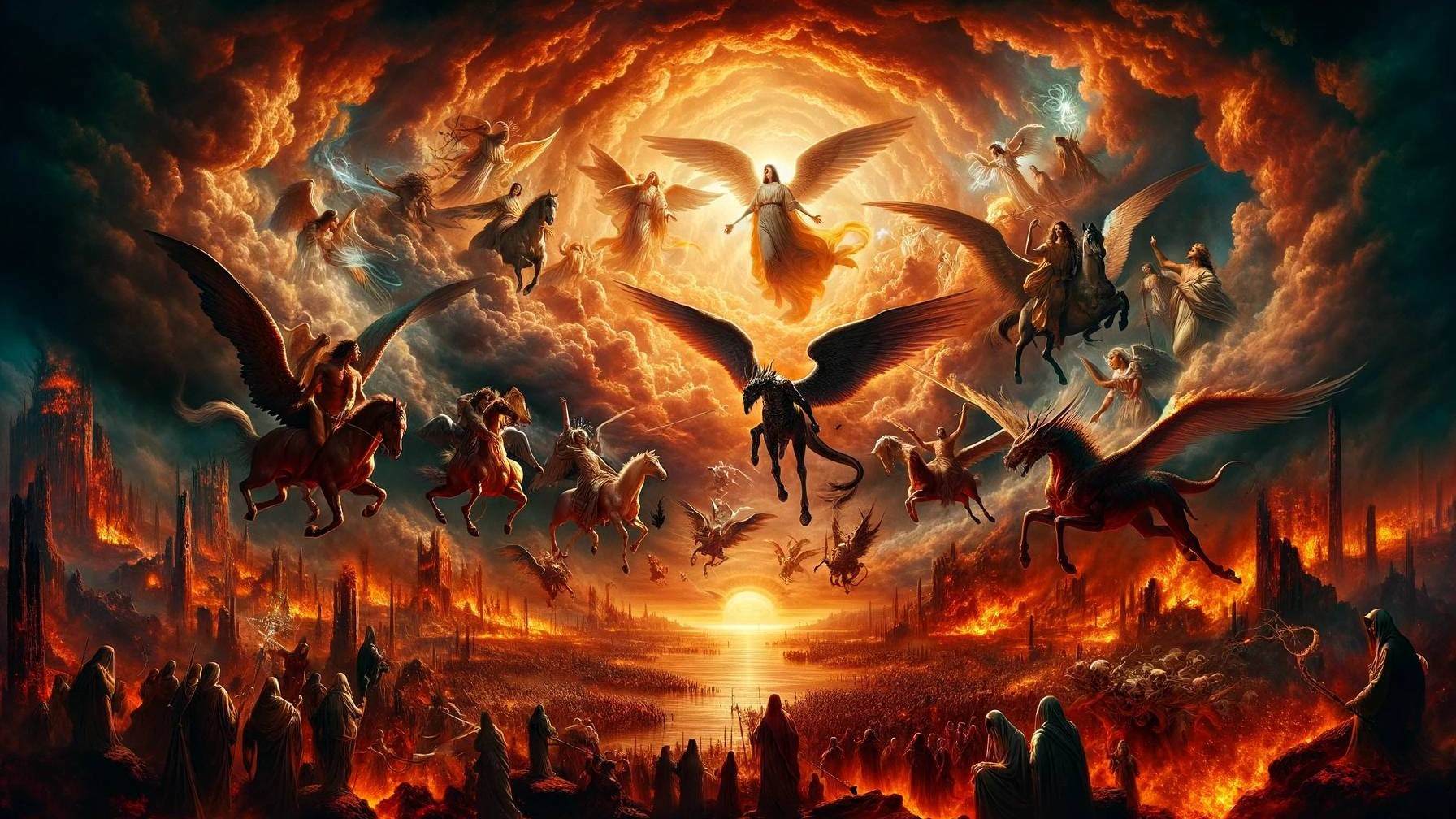

Bible Facts
What Are The Three Main Themes Of The Book Of Revelation?
Published: February 11, 2024
Jason DeRose, Managing Editor at Christian.net, uses his expertise in religion and journalism to deepen understanding of faith's societal impacts. His editorial leadership, coupled with a strong academic background, enriches the platform’s diverse content, earning him recognition in both journalism and religious circles.
Discover the three main themes of the Book of Revelation and gain valuable insights into its significance with these fascinating Bible facts. Explore now!
(Many of the links in this article redirect to a specific reviewed product. Your purchase of these products through affiliate links helps to generate commission for Christian.net, at no extra cost. Learn more)
Table of Contents
Introduction
The Book of Revelation, the final book of the New Testament, is a captivating and enigmatic piece of literature that has intrigued and inspired readers for centuries. Also known as the Apocalypse, this profound text is attributed to the apostle John and is filled with vivid imagery, symbolism, and prophecies. As readers delve into its pages, they encounter a rich tapestry of themes that offer profound insights into the nature of good and evil, the culmination of human history, and the ultimate victory of God's kingdom.
The Book of Revelation is a literary work that transcends time and space, offering a glimpse into the cosmic battle between the forces of light and darkness. Its themes resonate with the human experience, addressing fundamental questions about the nature of existence, the struggle between good and evil, and the ultimate destiny of humanity. Through its powerful imagery and prophetic visions, the book invites readers to contemplate the mysteries of life and the divine plan for the world.
As we embark on a journey through the themes of the Book of Revelation, we will explore the timeless truths and profound insights that continue to captivate and inspire readers across cultures and generations. From the triumph of good over evil to the ultimate victory of God and His kingdom, the themes of Revelation offer a compelling narrative that speaks to the human spirit and ignites the imagination. Join us as we unravel the mysteries and revelations contained within this extraordinary book, and discover the profound significance of its themes for our lives today.
Theme 1: The Triumph of Good over Evil
The Book of Revelation vividly portrays the timeless theme of the triumph of good over evil. Throughout its apocalyptic visions and symbolic imagery, the book presents a cosmic narrative of the ultimate victory of righteousness and justice. At the heart of this theme lies the portrayal of the ongoing struggle between the forces of light and darkness, culminating in the definitive triumph of God's sovereignty over all creation.
The book unfolds a dramatic portrayal of the conflict between good and evil, depicting the relentless efforts of malevolent powers to thwart the divine purpose. However, amidst the turmoil and chaos, the book resounds with the assurance that goodness will ultimately prevail. The triumph of good over evil is symbolized by the defeat of the dragon, representing the embodiment of evil, and the establishment of God's eternal kingdom of righteousness and peace.
Revelation's portrayal of the triumph of good over evil serves as a powerful source of hope and encouragement for believers. It reassures them that, despite the trials and tribulations they may face, the ultimate victory belongs to God and His faithful followers. This theme resonates with the human longing for justice and redemption, offering a profound message of assurance that evil will ultimately be vanquished, and righteousness will reign supreme.
The theme of the triumph of good over evil in Revelation also serves as a poignant reminder of the enduring nature of divine justice. It underscores the belief that, in the grand scheme of cosmic history, the forces of darkness are ultimately destined to be defeated, and the purity of God's righteousness will prevail. This portrayal of cosmic justice offers solace and reassurance to those who endure suffering and persecution, inspiring them to persevere in the knowledge that their faithfulness will ultimately be vindicated.
In essence, the theme of the triumph of good over evil in the Book of Revelation offers a compelling narrative that speaks to the universal human yearning for justice, redemption, and the ultimate victory of righteousness. It serves as a timeless testament to the enduring power of goodness and the assurance that, in the divine economy of the universe, evil will ultimately be vanquished, and God's eternal reign of righteousness will be established.
Theme 2: The End Times and Judgment
The Book of Revelation delves into the profound theme of the end times and judgment, offering a compelling portrayal of the culmination of human history and the divine reckoning of all creation. At the heart of this theme lies the prophetic vision of the eschaton, the final epoch of time in which God's ultimate purposes for the world are fulfilled. Revelation unfolds a vivid tapestry of apocalyptic imagery and symbolic narratives that depict the cataclysmic events leading to the ultimate judgment and restoration of all things.
The theme of the end times and judgment in Revelation serves as a powerful reminder of the transitory nature of human existence and the ultimate accountability of all beings before the divine throne. It presents a sobering reflection on the temporal nature of earthly realities and the certainty of a future reckoning, wherein every individual will be called to give an account of their lives. This theme resonates with the universal human longing for justice and the assurance that, in the grand scheme of cosmic history, all deeds will be weighed and evaluated according to divine standards of righteousness.
Revelation's portrayal of the end times and judgment also serves as a poignant call to spiritual vigilance and moral accountability. It underscores the imperative of living in readiness for the impending culmination of history, wherein the destinies of all individuals will be irrevocably determined. This theme challenges readers to reflect on the significance of their choices and actions, recognizing that their lives are intricately woven into the unfolding drama of cosmic redemption and judgment.
Furthermore, the theme of the end times and judgment in Revelation offers a profound message of hope and assurance for believers. It conveys the promise of a future restoration and renewal, wherein the injustices and sufferings of the present age will be rectified, and God's righteous purposes will be fully realized. This theme inspires believers to persevere in faith and righteousness, knowing that the trials and tribulations of the present age are but a prelude to the ultimate vindication and triumph of God's kingdom.
In essence, the theme of the end times and judgment in the Book of Revelation offers a compelling narrative that speaks to the universal human longing for justice, accountability, and the ultimate fulfillment of divine purposes. It serves as a timeless testament to the enduring significance of human choices and actions, and the assurance that, in the fullness of time, God's righteous judgment will prevail, and His redemptive purposes will be consummated.
Theme 3: The Ultimate Victory of God and His Kingdom
The Book of Revelation culminates in the profound theme of the ultimate victory of God and His kingdom. This theme serves as the climactic resolution of the cosmic drama depicted throughout the book, offering a compelling portrayal of the triumph of divine sovereignty and the establishment of God's eternal reign of righteousness and peace.
Revelation's depiction of the ultimate victory of God and His kingdom resounds with the assurance that, despite the tumultuous events and cosmic upheavals, the divine purpose will ultimately prevail. The book unfolds a majestic vision of the consummation of history, wherein the forces of darkness are decisively vanquished, and the sovereignty of God is universally acknowledged. This theme evokes a sense of awe and wonder, inviting readers to contemplate the majestic unfolding of God's redemptive plan for the world.
At the heart of this theme lies the portrayal of the New Jerusalem, the celestial city descending from heaven, symbolizing the ultimate union of God and humanity in a new creation. This vision of the heavenly city radiates with the brilliance of divine glory, signifying the fulfillment of God's promise to dwell among His people and reign in unending splendor. The imagery of the New Jerusalem conveys a profound message of hope and renewal, inspiring believers to anticipate the ultimate fulfillment of God's redemptive purposes for the world.
Furthermore, the theme of the ultimate victory of God and His kingdom in Revelation serves as a powerful source of encouragement and assurance for believers. It conveys the promise of a future reality wherein the sorrows and sufferings of the present age will be eclipsed by the radiant glory of God's eternal kingdom. This theme inspires believers to persevere in faith and righteousness, knowing that their labor in the Lord is not in vain, and that the ultimate victory belongs to God and His faithful followers.
In essence, the theme of the ultimate victory of God and His kingdom in the Book of Revelation offers a compelling narrative that speaks to the universal human longing for fulfillment, restoration, and the ultimate triumph of divine purposes. It serves as a timeless testament to the enduring faithfulness of God and the assurance that, in the fullness of time, His kingdom will be established, and His glory will illuminate the cosmos for all eternity.
